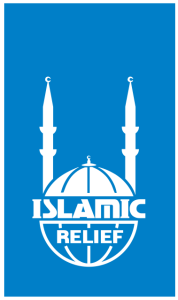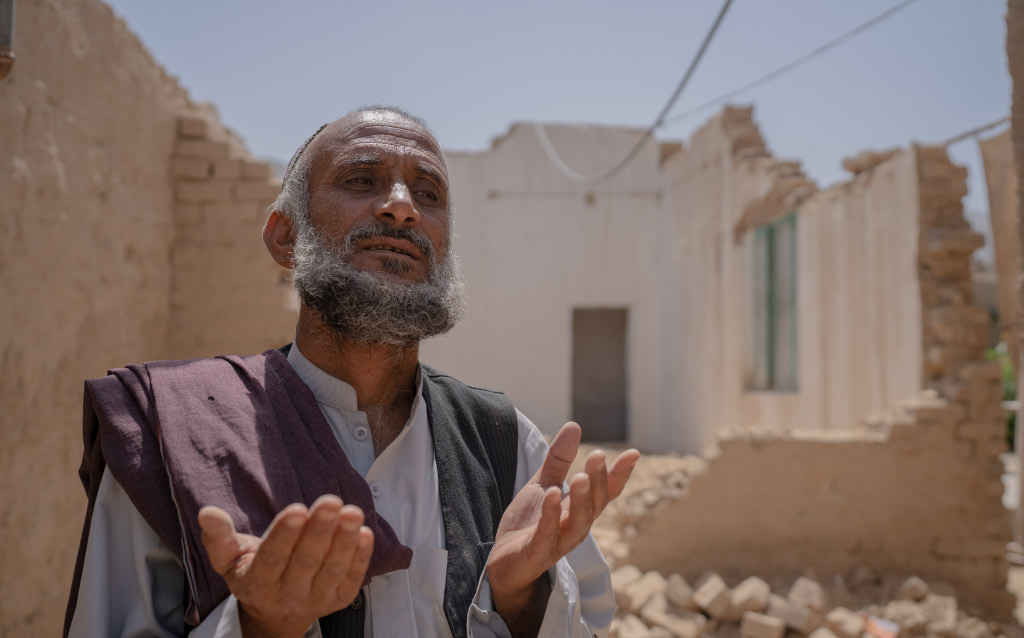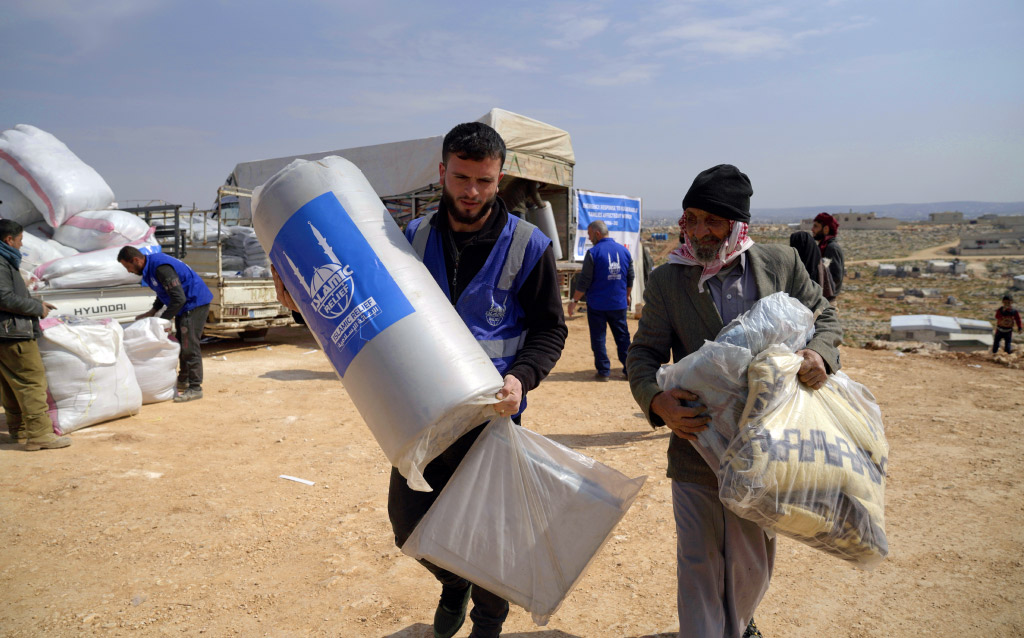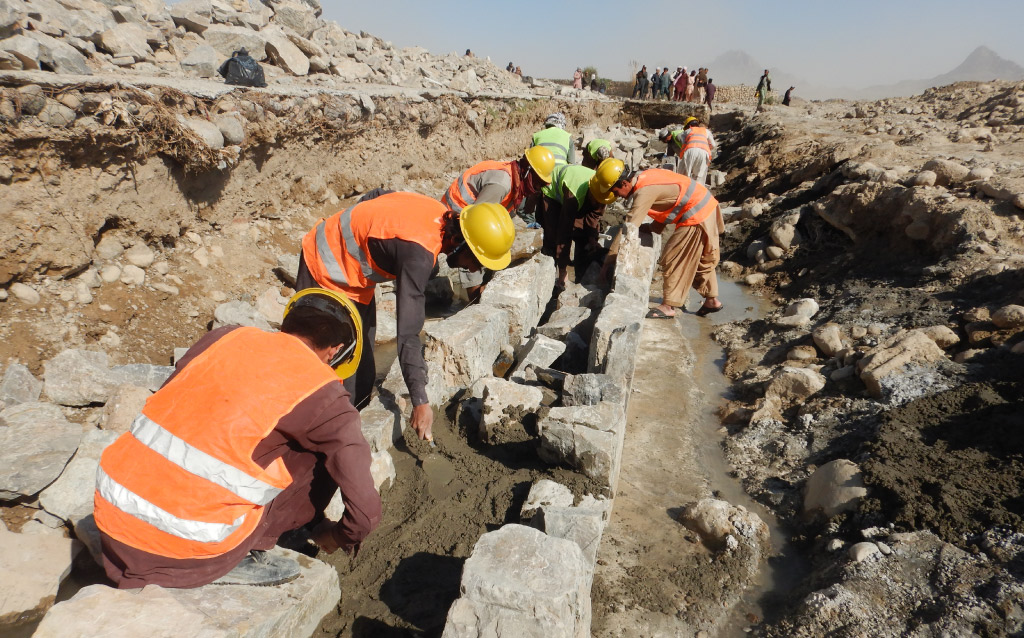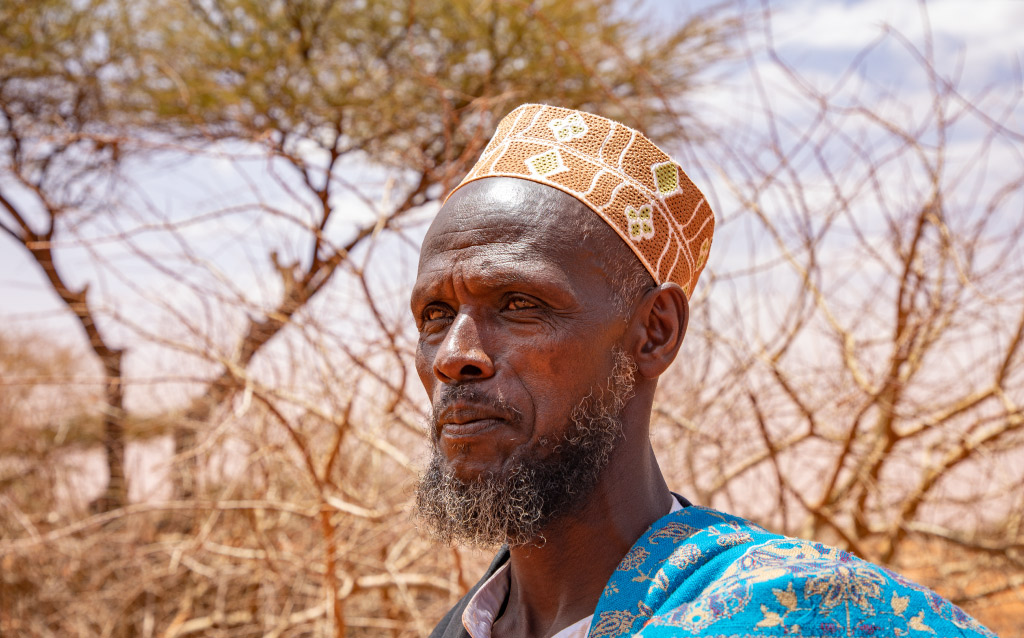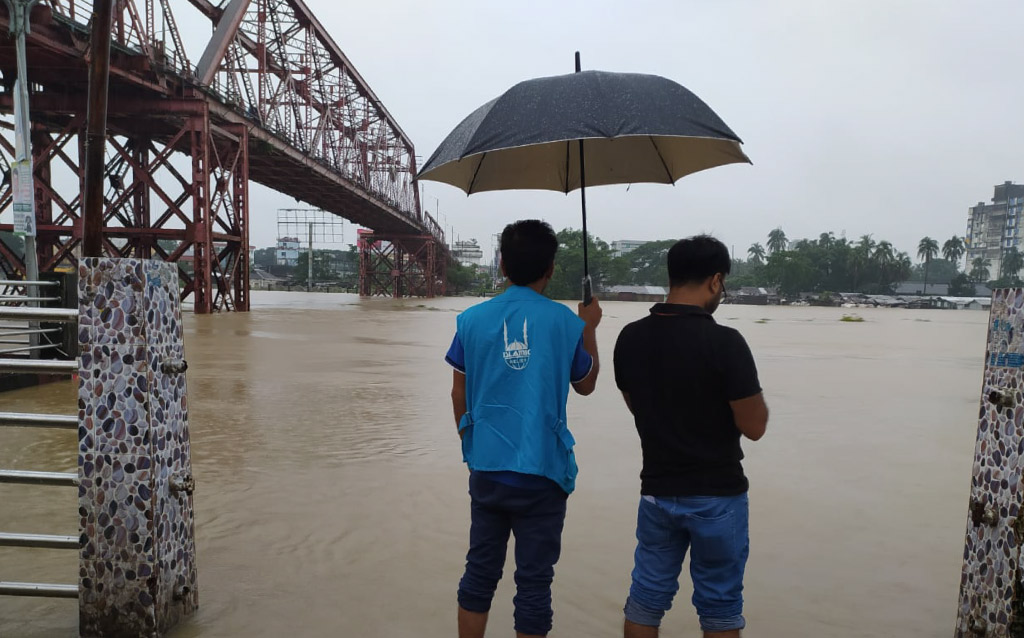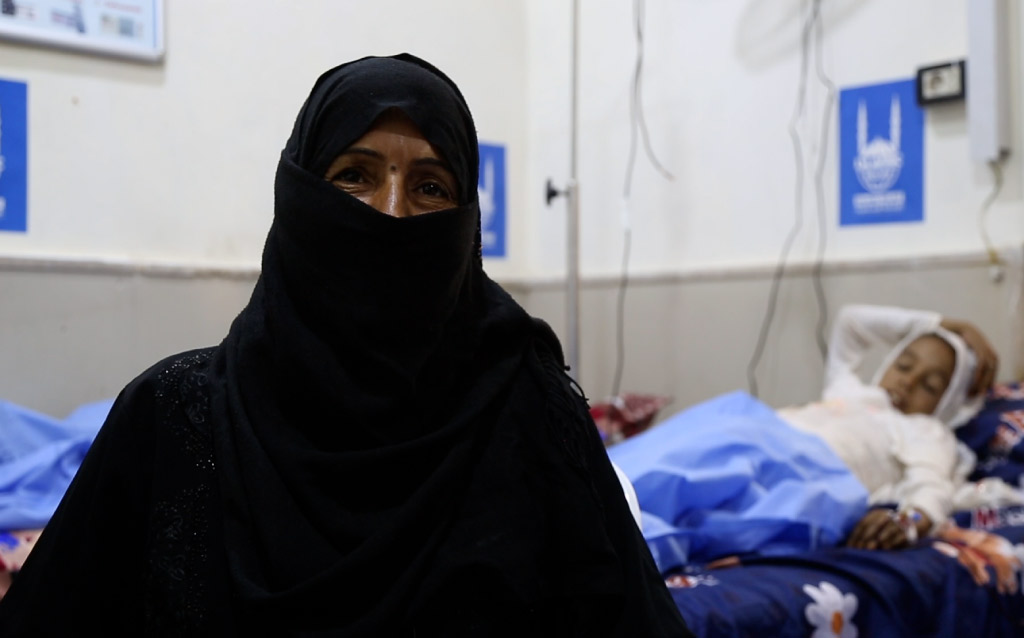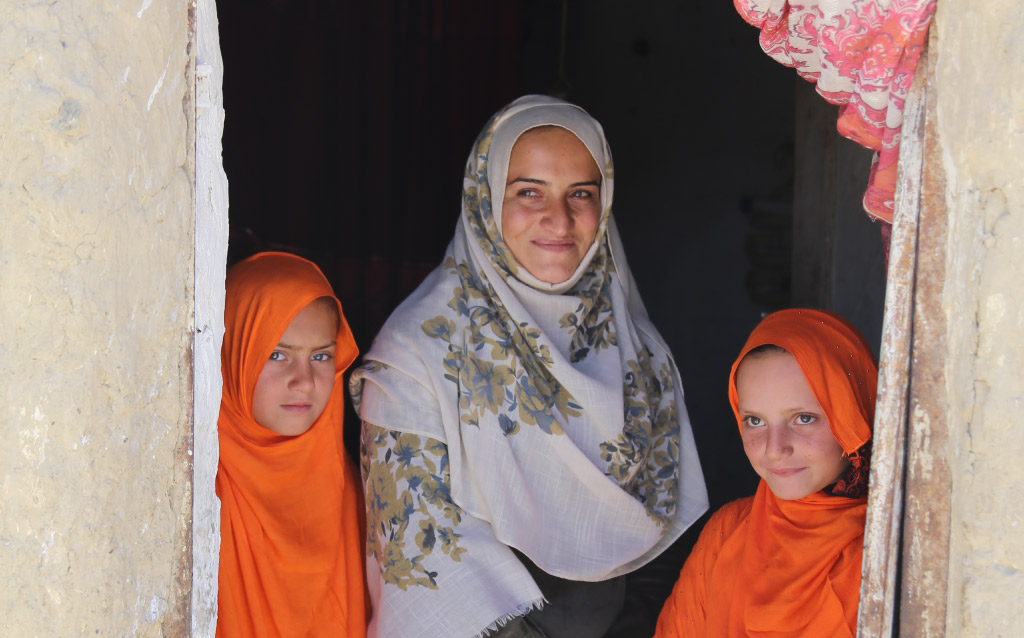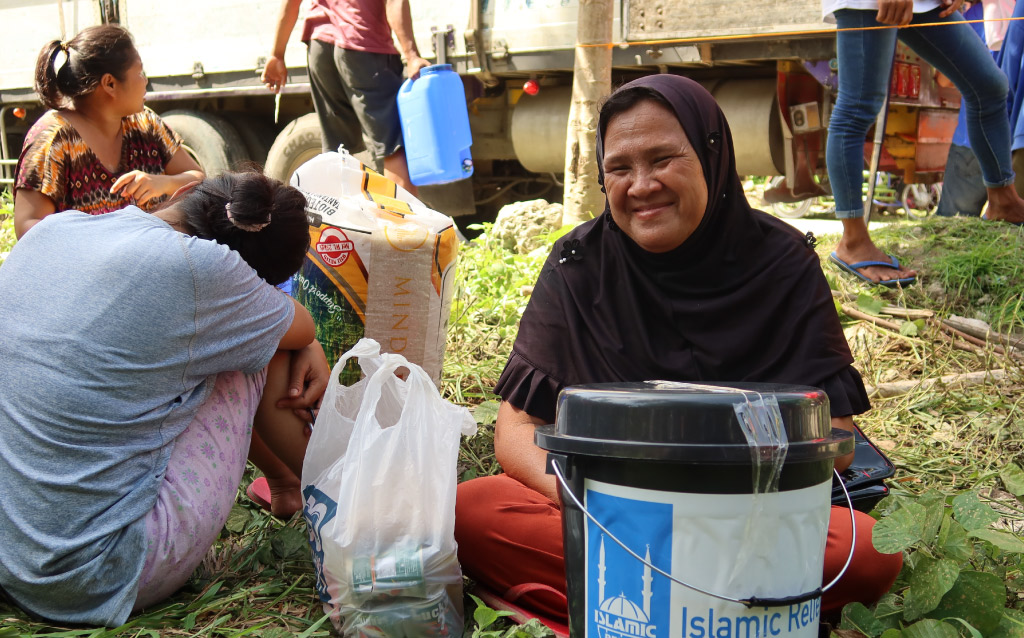In one of the most devastating natural disasters in living memory, massive flooding triggered by a ‘monster monsoon’ and glacial melting, hits Pakistan. One-third of the country is submerged, affecting 33 million people. Over 1,700 people die and nearly 13,000 others are injured. More than 2.2 million people lose their homes and many now live out in the open, without food or water. Dangerous diseases such as diarrhoea, malaria, and typhoid spread rapidly in flooded communities and – with over 2,000 health facilities thought to be damaged – access to vital healthcare is difficult for months.
Other essential infrastructure has been badly hit, with more than 13,000 kilometres of roads damaged and 400 bridges destroyed. Livelihoods are also ruined: more than 4.4 million acres of crops and orchards have been affected, while over 1.1 million livestock have died. The total cost of the damage is thought to exceed $10 billion [£8.5 billion].
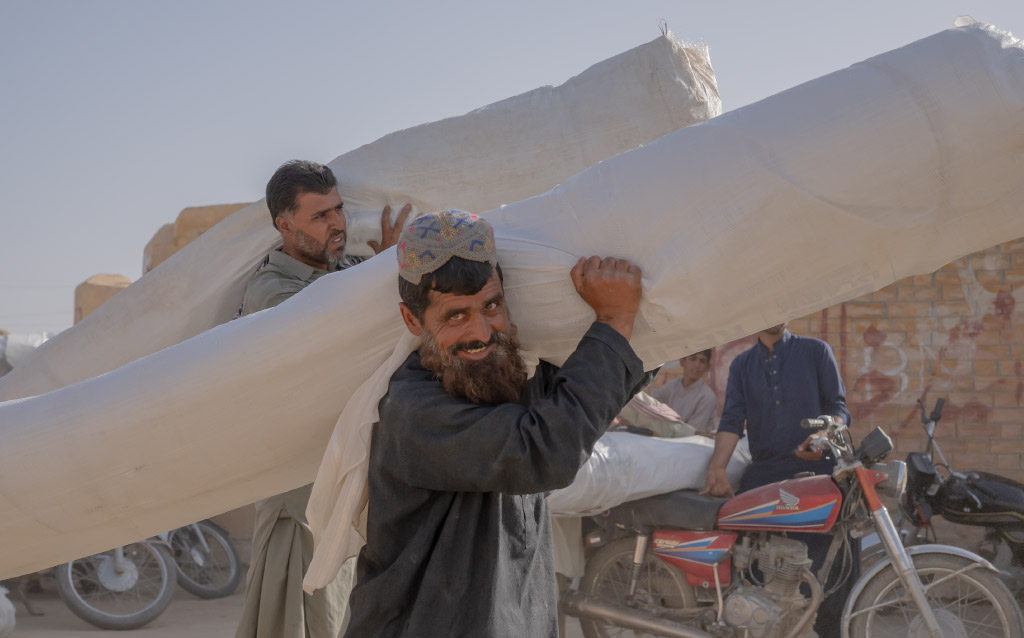
“At least we are not out in the open now: the tent protects us from the blazing heat during the day,” says father-of-five Ubaid, who received shelter and other survival items from Islamic Relief. His family home in Killi Batto village, Pakistan, has been uninhabitable since the floods. “Losing your house is painful. We were already poor, the floods made us poorer.”
Islamic Relief has been on the ground providing vital humanitarian aid from the very start. We provide food packs, kitchen sets, hygiene kits and tents to over 91,550 individuals in heavily affected areas such as Noshki, Quetta and Balochistan. In areas such as Malir-Karachi, Thatta, Dadu, Mirpur Khas and Sindh, we provide over 200,000 individuals with food packs, household kits and tarpaulin sheets. We build pit latrines and team up with UNICEF to provide over 1 million litres of drinking water for more than 550,000 people. The counselling we provide helps people come to terms with all they have experienced.
As communities begin the enormous task of rebuilding in the aftermath of the disaster, we remain by their sides. Islamic Relief provides 4,600 permanent shelters to families displaced in the worst affected areas, helps other communities rebuild their homes themselves, and builds temporary learning centres so children do not miss out on their education.
In November, we team up with the UNDP to announce a partnership to create job opportunities and support the construction of vital community infrastructures in Sindh. We provide cash-for-workopportunities for local people, enabling them to earn as they help to repair their communities.

Samira (left) with some of the survival items Islamic Relief distributes in Sudan’s River Nile State. Flood-affected families receive essentials such as blankets, mosquito nets, shampoo, sanitary pads and soap.
Disaster
Caused by torrential seasonal rains, flash flooding in Sudan kills scores of people.
Impact
As climate change makes natural disasters increasingly frequent and intense, flooding is becoming an annual occurrence in Sudan. 2022’s flood affects around 136,000 people, damaging or destroying tens of thousands of homes as well as important infrastructure such as healthcare and water sources.
Response
In our emergency response, we prioritise areas in which we were already delivering humanitarian and development assistance. We provide survival items, food packs and water, and sanitation and hygiene services reaching more than 100,000 people.
When flash flooding strikes 10 Afghan provinces, the home of Amruddin, in Musahi district, is among those destroyed. Islamic Relief gives essential staples such as wheat, pulses, cooking oil and salt to his family and more than 300 other affected households in the area.

